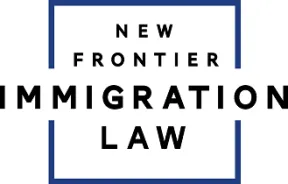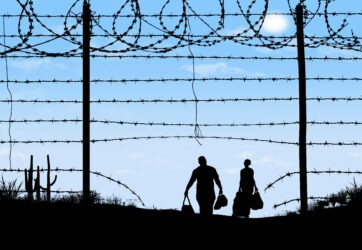
As you strive to obtain lawful permanent residence in the United States, you could face several obstacles along the way. The most common obstacle is being deemed inadmissible and given a three-year, ten-year, or permanent bar from entering the country. However, if you receive a three-year bar, you can attempt to appeal the ruling.
At New Frontier Immigration Law, we strive to help our clients receive lawful permanent residence in the United States. Our mission is to keep families together. When you are separated from your family and facing a three-year bar, our immigration attorneys are ready to help you.
What Is a Three-Year Bar?
A three-year bar is the least severe punishment administered by the United States government to prevent non-citizens from entering the country.
According to U.S. Citizenship and Immigration Services (USCIS), you may receive a three-year bar if you:
- Are not a U.S. citizen or lawful permanent resident;
- Were unlawfully present in the U.S. for more than 180 days but less than one year during a single period;
- Voluntarily left the U.S. before the Department of Homeland Security began proceedings to remove you from the county; and
- Seek admission within three years of departing the U.S. following your unlawful presence
Unlawful Presence
Unlawful presence refers to the period in which a non-citizen is present in the United States without permission. This could be because the non-citizen snuck into the country without being admitted or overstayed their authorized period as defined by a Department of Homeland Security Officer.
If you stayed in the United States for longer than one year during a single period, or if you accumulated more than one year of unlawful presence on many visits, then you may be subject to a more severe bar.
For a free case review , call
How Can I Avoid the Three-Year Bar?
The easiest way to avoid the three-year bar is to not enter or remain in the United States without being admitted or paroled. However, once you and your family are in the country, you may find yourself accustomed to the way of life that is provided. Unwilling to leave your new home, you may decide to stay longer than the Department of Homeland Security permitted you.
Extreme Hardship Waiver
One of the possible ways to overturn a three-year bar is by filing an extreme hardship waiver with USCIS. This waiver is used to prove that, without the presence of the barred person, their family members would suffer extreme hardships in the United States. It can also be used to prove that any citizens relocating to another country from the United States would suffer extreme hardship in that country.
An officer will determine whether your extreme hardship waiver is approved based on your circumstances. This means they will look at all factors, arguments, and evidence you submit to determine if extreme hardship is likely. Factors that may affect USCIS’s decision include family ties, social and cultural impact, economic impact, health conditions and care, and country conditions.
It is essential to understand that USCIS does not deem common consequences of denied admission as extreme hardship. These consequences include:
- Family separation
- Economic detriment
- Difficulties in a new country
- Quality of educational, employment, and healthcare opportunities
Avoiding Common Consequences
When you struggle to gain lawful permanent residence, you may only be thinking about these common consequences as you try to remain with your family and continue to work to provide opportunities for them. If you are unsure how to prove that the consequences are actually extreme in your case, an immigration lawyer may be able to help.
Our immigration lawyers have helped hundreds of non-citizens gain residency and remain in the U.S. We have researched what factors offer improved chances of consideration for an extreme hardship waiver, which can help you avoid a bar.
Contact New Frontier Immigration Law Today
Avoiding a three-year bar can be difficult. As you are forced to decide between leaving the United States and caring for your family, you may find yourself unlawfully present in the country. When this happens, you could face the three-year bar and be forced to remain away from your family for an extended period.
At New Frontier Immigration Law, we are committed to helping our clients remain with their families in the United States. We believe all our clients have the right to live happily in the country where they can best care for their families. If you are facing a three-year bar, contact us at New Frontier Immigration to schedule a strategic session today.





